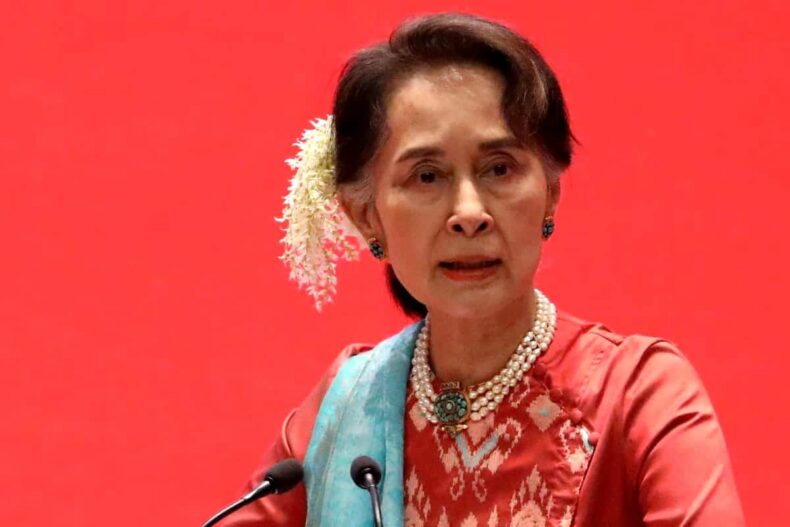On Wednesday, the US, UK, Japan, and Australia expressed their concern over the collapse of Myanmar’s former ruling party and called for a more inclusive procedure to restore democracy in the nation.
Table of Contents

Aung San Suu Kyi’s National League for Democracy (NLD) and 39 other parties were disbanded by Myanmar’s ruling junta on Tuesday because they missed the deadline to register for an election that would have extended the military’s hold on global powers.
A backdrop on the issue
Since a military takeover in early 2021, which ended a decade of shaky democracy, Myanmar has been in turmoil, with a violent suppression on protests sparking an armed uprising against the junta. According to the United Nations, fighting has resulted in the displacement of more than a million people.
Aung San Suu Kyi, the deposed leader of Myanmar, is currently serving a 33-year prison sentence for a variety of offences, and several of of her NLD allies are either missing or in jail as well. The NLD had continuously disqualified itself from participating in the election, claiming it was invalid.

We have serious concerns that the NLD’s exclusion from the policy participation will make things even more challenging to get better, said the Japan’s foreign minister in a statement. Japan implores Myanmar to free all NLD officials right away, including Suu Kyi, and to lay out a plan for a peaceful resolution that involves all parties involved.
It was not possible to speak with a military spokesperson for Myanmar right away for comment. On Monday, its leader Min Aung Hlaing pleaded with his opponents around the world to support his efforts to reestablish democracy.
Assault on freedoms
Vedant Patel, a deputy spokesperson for the U.S. State Department, told reporters that the country “strongly condemns” the decision to ban 40 political parties. “Any election in Burma without the involvement of all stakeholders would not be and cannot be regarded as free or fair,” Patel said, referring to the former name of the country in Southeast Asia.
The NLD and other parties’ dissolution was criticised by the British foreign office as a “assault on the rights and freedoms” of the people of Myanmar. A spokesperson for the foreign office says that UK condemn the military rule’s politically driven actions such as extremely violent methods used to seed fear and suppress the opposition.

The Department of Foreign Affairs and Trade of Australia stated that it was extremely concerned about Myanmar’s political space becoming even more constrained as a result of stringent election registration requirements.
All parties involved should be permitted to participate in politics, it argued, because doing otherwise could fuel more violence and unrest. It issued a statement saying, “We will keep a close eye on the regime’s actions and arrange for the restoration of democracy, including credible elections.“
What does the coup mean for democratic reforms in Myanmar?
It is not the first coup in the nation’s history; the military came to power in a coup in 1962. Following a series of demonstrations known as the 8888 Uprising, a second coup in 1988 installed the military junta that would rule for the following 22 years.
2011 saw the start of Myanmar’s democratic reforms, which the army referred to as “discipline-flourishing democracy.” Its first free general election in 25 years, which propelled Suu Kyi to power, took place in 2015.

The coup appears likely to overturn hard-won democratic reforms that the United States under the Obama Administration worked to foster, despite military leaders’ claims that they were assuming control for a year under emergency powers given to them by the constitution. After decades of military rule, Suu Kyi won the country’s political leadership in the most free elections in 25 years just five years prior.













